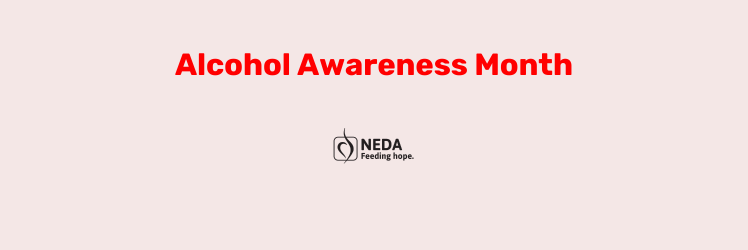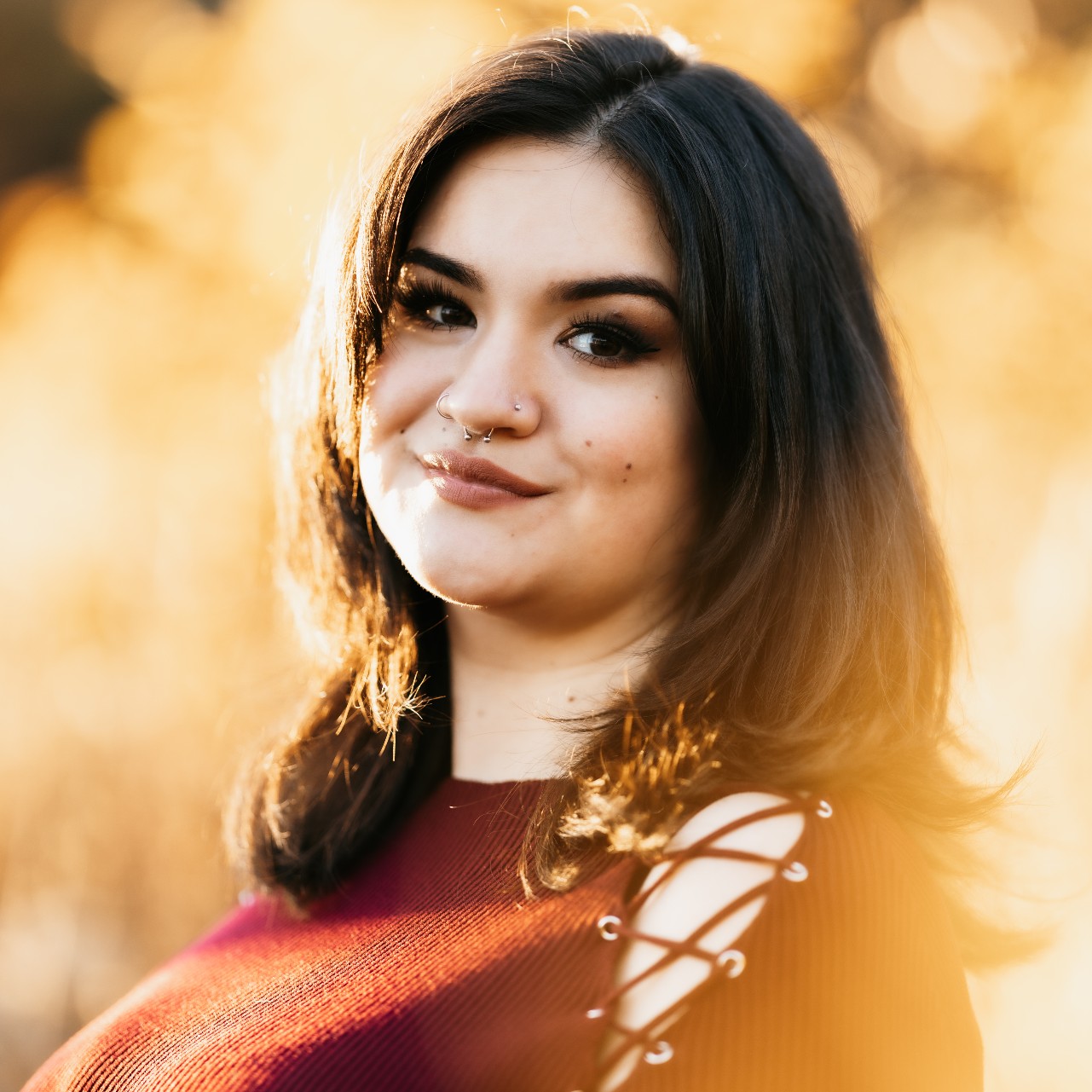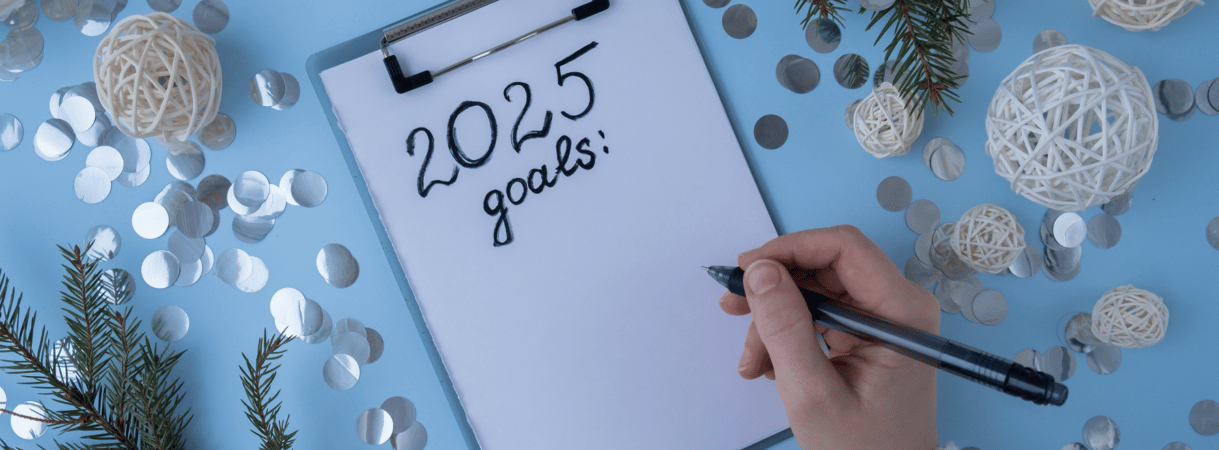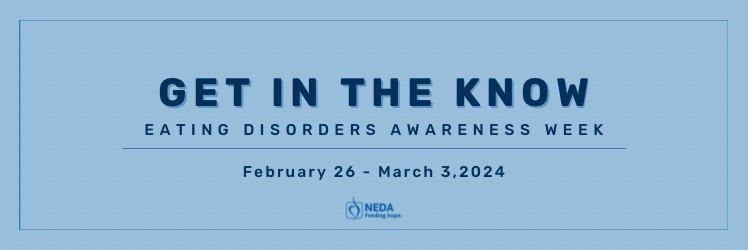The first time I drank, I got black out drunk. At a college Halloween party, I did my best to keep up with my older friends. Shot by shot, I felt more and more accomplished, finally outside my own head. I took selfies with friends and danced unashamedly in only a bodysuit and fishnet. In those moments, gone were the days of isolation, longing, and self-loathing. It was then I proved to myself that I, a sad girl, could have fun.
I came to college with a secret, a near-decades-long battle with an eating disorder. I vowed to leave it behind and find a new identity— but eating disorders persist across space and time. Regardless, I packed my calendar full of work, school, and friends, hoping that busyness would take me away from ED. I hid for a few months before ED caught up to me, just as I had found something that finally made me feel normal. I drank to ease the pain of being imperfect— both physically and at controlling my ED. With alcohol, I could fake confidence so well that I forgot that sober me had none.
My struggles with both ED and alcohol caught up to me fast. I started skipping class to engage in ED behaviors, drink, and use drugs. Schoolwork, which had once been my number one priority, was the last thing on my mind. Desperate to finish my degree, I enrolled in a 90-day residential treatment program near home. The night before I left, I went to a party and got black out drunk. I wrote a letter to myself swearing that I wouldn’t quit partying. If I could be the party girl, at least I didn’t have to be the sad girl with an ED.
A few weeks away from my treatment graduation, I was expelled for drinking. I went to a party directly from there, where I drank and danced and pretended that I didn’t have ED, didn’t hate myself, and didn’t have a problem with alcohol. That dance continued for two more years as I watched every relationship I had dwindle away. I didn’t return back to school to finish my degree, instead wandering around my hometown ruining everything I touched.
In 2020, triggered by a mix of the pandemic, going into liver failure, and getting out of an abusive relationship, I decided to get sober. Sobriety involved facing the truth of what I was trying to hide— the pain of hating my body, the shame and guilt I felt around eating, and the deep disdain I had for myself. Without alcohol, I felt even more defined by my ED, unable to channel the version of myself that could be confident and carefree. I had to accept, and even grieve, that my relationship with alcohol, food, and body were dysfunctional and toxic. After losing everything, I finally understood that I could only make a change if I dared to do something different, and dared to believe that I didn’t have all the answers. That was my first breakthrough, and often what people think of as the first step of any type of recovery: admitting we have a problem.
What came next, the process of recovery, felt like a constant game of tug-of-war; with every step away from ED, I stepped closer to alcohol. To truly recover, I had to ask myself what purpose alcohol and ED were serving in my life; what was I running from and running to? Through therapy, journaling, meditation, I realized that in every substance and every vice, I sought community, connection, and excitement. Ironically, community, connection, and excitement are exactly what I’ll never find there. Thus began the next step in my journey, of finding replacements for ED or alcohol or drugs that wouldn’t cause me so much harm. For me, this was the hardest step— setting aside my need for instant gratification and grieving that sustainable, healthy solutions often don’t feel as good as fast. It’s okay to miss things about your addiction or ED, and it’s okay to grieve that version of you. We’re tasked with building a new identity, connecting with the version of ourselves that came before, and that’s terrifying. It takes time, especially if we grew up with ED since childhood, to understand who we are and what we want. But we must keep reminding ourselves of the loneliness, the sadness, and the desolation that addiction brought us, and that we’ll never find what we’re looking for there.
I did much of the beginning stages in solitude and without telling anyone, but I wouldn’t have made it without having something else, completely unrelated to recovery, to aspire to. For me, that just looked like showing up to work every day, even with a secret. Building that self-efficacy and self-trust was crucial in my recovery, when I was still trying to forgive myself for the things I’d done. Although it can feel impossible to leave the house when we feel insecure, ashamed, or depressed, I noticed how much better I felt when I stepped outside of my own head and connected with others. Be scared, be sad, be uncertain, and show up anyway.
The next phase of my recovery involved (un)learning. After years away from school, I took a chance on myself and enrolled in school, knowing I’d have to work even harder to pay for school and get good grades. My education empowered me and brought me home to myself, reconnecting me with my childhood loves of reading and writing, which I’d completely abandoned in pursuit of the perfect body and perfect life. My education also inspired me to become angry at the lies I’d been told about diet culture, and to challenge the westernized standard of beauty that I, a Latina woman, would never fit into. I was never meant to accept myself in a world that values thinness, whiteness, and patriarchy, but in choosing to do so anyway, I am practicing a radical act. When I began seeing my healing as something greater than myself, shame began to disappear, and connecting with others became easier. We do not struggle with ED or substance abuse because we are inherently bad, or wrong, or weak. We struggle with these things because we’ve been sold them as the solution to our problems. It’s been three years since I decided to choose recovery, and I still have to remind myself of this every day. I still have to journal, go to therapy, and nurture myself. I am imperfect, I stumble, I relapse, I self-isolate, and yet, I’m here. I’m trying. I’m learning. That’s a hell of a lot more than younger me could say, and for that, I’m so proud.
Annie Romano (she/her/ella) is a Latina writer and reproductive justice researcher. Following a 10+ year battle with eating disorders, self-harm, and substance abuse, she turned to an education in Gender, Women, & Sexuality Studies to study the systems of oppression behind eating disorders, substance abuse, and recovery. She is currently reading Body Liberation by Chrissy King, and has way too many tattoos of fruit. Annie dreams of a world where all people can access the healthcare they need, and where no bodies are criminalized or deemed unworthy. In pursuit of her dream, Annie plans on attending law school next year.






